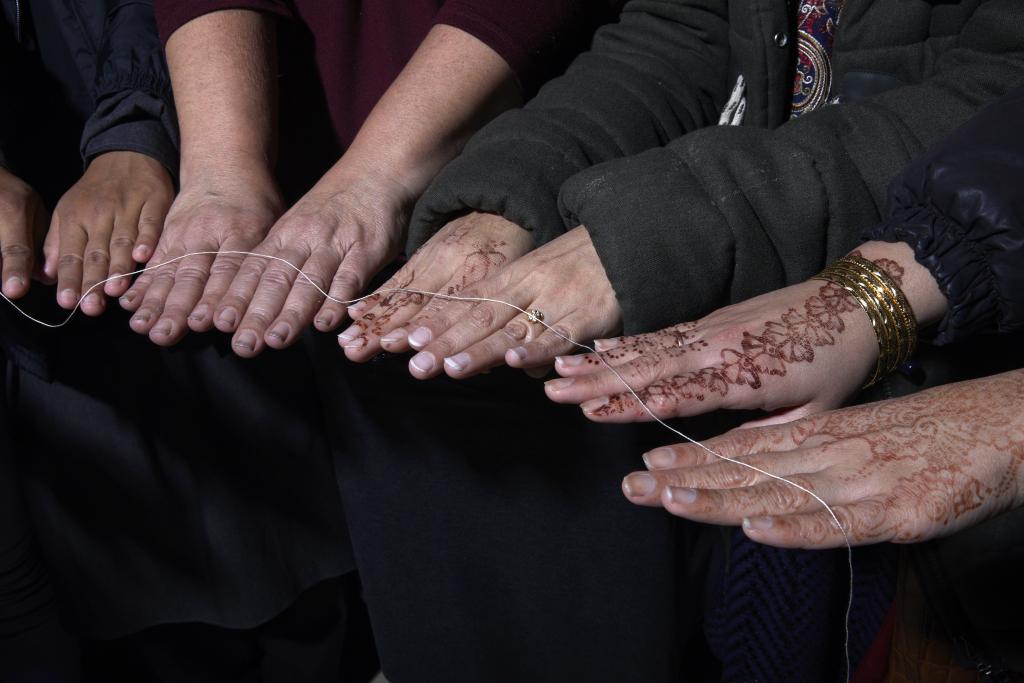
Meet me at the River
Founded in 2011, MaMa is a cross-national network of women, mothers, migrants, artists, academics, and activists who work together to support members who are seeking sanctuary, and campaign for justice in the migration system. Jennifer Verson, Artistic Director of MaMa discusses the pop-up exhibition at Martin Luther King Jr building and it's relevance to International Woman's Day.

'Meet me at the River', the first of a series of temporary exhibitions at the Martin Luther King Jr building opened on March 4th, the Friday before International Women’s Day. 'Meet me at the River' is an immersive soundscape developed from the work of MaMa with the archives, exhibitions and artefacts of the International Slavery Museum. The soundscape is complemented by new images co-created by MaMa members and Manuel Vason during a residency at the Museum in December.
International Woman’s Day is a day to remember and reflect on the multitudes of women many of whom have been forgotten by history who have stood together to the long struggle for equality for all. Woven into the fabric of the soundscape which fills the Martin Luther King Jr building are the lives of women we remember.
The theme this year for IWD is #breakthebias. As the Artistic Director of Migrant Artists Mutual Aid, and a researcher in art and peacebuilding, IWD is a time for me to reflect on the potential of our work as a collective of migrants, mothers, and artists to engage museum visitors with the violent history of slavery in a way that inspires them to work for justice and equality today and #breakthebias.
Often I think of Rosa Parks as my hero, who in Montgomery Alabama in 1956 refused to give up her seat on a segregated bus. But On IWD it is particularly important to remember that Rosa Parks was ready for her resistance to injustice. Rosa was secretary of her local chapter of the NAACP, she had attended the Highlander Folk School a training centre for social justice leadership. Rosa Parks was part of a movement of people working together to fight the violence of racism, injustice and inequality.

No Sugar in our Tea remembers the abolitionist sugar boycott. Beginning in Leicester, Elizabeth Heyrick campaigned for boycott of sugar produced by enslaved people. Working alongside other women abolitionists Lucy Townsend, Mary Lloyd, Sarah Wedgwood and Sophia Sturge, she was part of a growing radical movement of women fighting for the immediate (rather than gradual) abolition of slavery.
The exhibition features images from a very special abolitionist rolling pin which alongside the Wedgewood abolitionist sugar bowls, inspired MaMa musical director Anstey Gilley to write a new protest song No Sugar in our Tea. The inscription on the rolling pin on display in the International Slavery Museum “Health to the Sick, Honour to the Brave, Success to the Lover and Freedom to the Slave” alongside other abolitionist slogans, echo through the exhibition, as MaMa is joined by members of other Liverpool choirs. The rolling pin carried so much resonance imbued with the memories of the unnamed bakers rolling pastry and thinking of abolition.

The work of Migrant Artists Mutual Aid creates a rich environment to contemplate and complicate the politics of pleading that is often embedded in the abolitionist imagery. Actions of pleading for freedom and basic human rights imbue the heritage of the abolition movement with a racialised and normative power relationship. Images of MaMa members who have stood up for women’s rights to asylum protection from gender-based persecution, holding abolitionist medallions asks us to reflect on the political implications of pleading and at the same time remember the women who found a political voice in the fight for justice.

While in residence at the Slavery Museum to create the images for the exhibition we had the opportunity working with photographer Manuel Vason to create images which considered and interpreted some of the archives and artefacts of the museum. Members of MaMa honoured, prayed, witnessed and remembered women who had been enslaved whose lives were documented in 1794, but whose names and histories were stolen from them. The brutality and violence of over 200 years of Chattel slavery in the British Empire, generations of enslavement are witnessed in a book of names from a Caribbean Sugar plantation held by the museum. On International Women’s Day, these images cry out to ask all of us to remember the lives of enslaved mothers who continued to bring life into the world.

The images co-created with Manuel and the ISM team during our residency are projected onto an installation of ship sails that are configured as those of Kitty’s Amelia. Known for being the last legal voyage of a slave trading ship, the name is an amalgamation of two names the Sailing Vessel Kitty which captured the Jeune Amélie which then became Kitty’s Amelia. The name of the ship itself evokes another layer of the history of women’s names-owned, stolen, and erased from history.

On IWD we celebrate the power of memory. Meet me at the River is a unique and sacred space to consider the traces and artefacts of women’s lives and women’s names. We hope that our work with the archives and artefacts of the ISM we can create a space of agency for social repair, inspiring others to work for justice, equality and practical actions of social repair as we grapple with the legacy of the transatlantic slave trade and what it means for those of us who have made Liverpool our home.
And in the words of Dr. Martin Luther King Jr.
hew out of the mountain of despair a stone of hope
